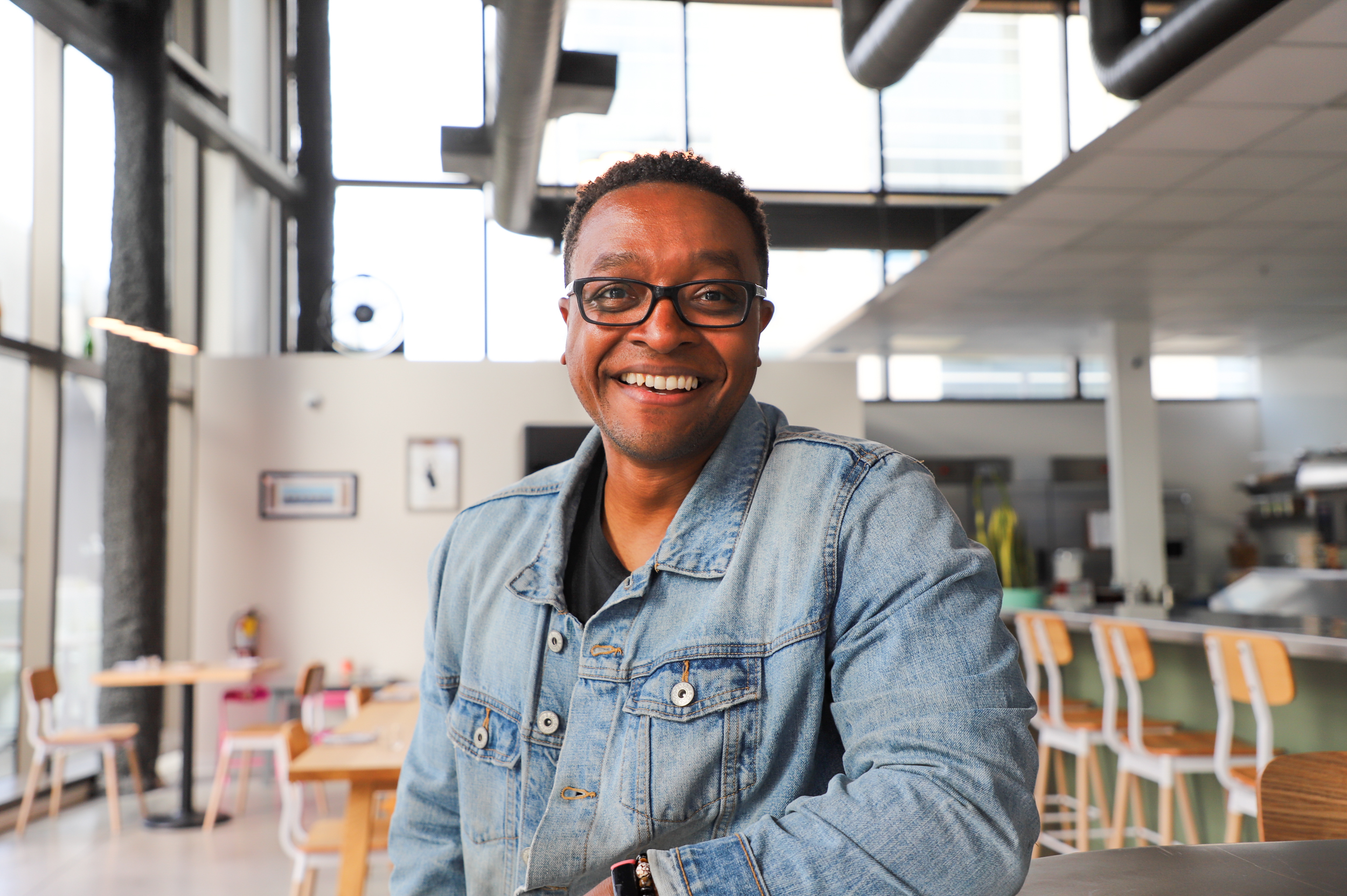Chris Gaither was opening up for evening service at GluGlu Friday afternoon, standing up signs outside and polishing wine glasses at the charming wine bar-restaurant he owns with his wife right next to Chase Center.
He’d heard the rumors that OpenAI is poised to sign a massive lease in Mission Bay, just a stone’s throw away from GluGlu. The ChatGPT maker reportedly plans to take nearly 450,000 square feet of a headquarters complex designed for Uber, but never occupied by the ride-share company, according to the San Francisco Chronicle.
Gaither addressed the news—that the ascendant AI company may sign the city’s single-largest office lease since 2018—with a tinge of optimism. GluGlu opened just five months ago, but has had a tough time gaining a steady clientele.
“Not a lot of people know that we’re here, and a lot of it is due to the fact that people consider this place an event-space only,” Gaither said.
Chase Center has transformed the Mission Bay waterfront, but nearby small businesses are still grappling with volatility coming out of the pandemic. More often than not, sales are contingent on the Warriors’ season and the arena’s concert bookings
Most see the thousands of new OpenAI employees coming to the neighborhood as a hopeful sign of growth for their businesses and the community. But, with private cafeterias and hybrid work, not all of them are convinced. Jimmy Lian, general manager of Harmonic Brewing in Thrive Center, describes business as operating in “extreme peaks and valleys.”
“When there’s a Warriors game or a Chase Center event, like a concert, we’re always busy, but it’s those days in between that we really struggle,” Lian said, adding that the events are what keeps them afloat. Friday afternoon, the bar had already started filling up with groups of tech workers and concertgoers. (The show that night: The punk-influenced rap duo $uicideboy$.)
Harmonic sees a consistent flow of University of California San Francisco Medical Center workers coming in after their shifts. And the days that Uber employees come into the office—typically Tuesdays and Thursdays, plus some pre-weekend happy hours—provide an additional boost.
But given Uber’s hybrid work policy, the traffic is not always enough to break even during the NBA offseason. Harmonic has recently set up in-house events—DJ classes and trivia—to help lure more customers in. The company recently announced it would close its Dogpatch location at the end of the month.
Derek Daniels, a research director at real estate firm Colliers, said there has been much made of AI’s potential impact on San Francisco’s lagging office market. But the OpenAI deal feels a bit different, in part due to the scale.
Daniels said plenty of neighborhoods are vying for a slice of the AI pie—with startups taking up space in Potrero Hill, Showplace Square and the Inner Mission. That San Francisco’s buzziest tech company in years is setting up a home base in Mission Bay, which borders Potrero Hill and Showplace Square, is a no-brainer, considering its proximity to the rest of “Area AI.”
“There’s the potential to have, at some point, a couple thousand more people in that area on a daily basis,” said Daniels, who is not directly involved with OpenAI’s prospective lease.
Lian said he believes the ChatGPT maker’s entry into the neighborhood could make Mission Bay synonymous with AI to residents and tourists alike.
“I think it’ll draw some interest from people that aren’t even affiliated with the company, like, ‘Oh, they’re opening offices down there. Let’s go check it out,’” Lian said.
Gaither agrees, saying he thinks OpenAI could help Mission Bay reach a path to becoming a “destination neighborhood” not unlike the Dogpatch, where his other wine bar, Ungrafted, is located.
Other business owners are a little more skeptical.
SF Kebab, which is just outside the perimeter of the Chase Center and its Thrive City plaza—has seen relatively little impact on their business from Uber, despite the ride-hailing giant’s headquarters being located across the street. Owner Bawer Tekin worries that OpenAI’s presence will be the same.
“I’m sure if [OpenAI] comes … they will have kitchen facilities,” said Tekin, who first opened up his shop in 2017. A marketing brochure advertising 1725 Third St., one of the buildings being considered by OpenAI, touts a full-service commercial kitchen and cafeteria on the sixth and seventh floors of the building.
Tekin is also unsure how often OpenAI employees will actually be coming in, although CEO Sam Altman’s characterization of remote work as an unsuccessful “experiment” is likely a positive sign. A number of OpenAI job listings reference a hybrid work model of three in-office days weekly.
UCSF and nearby biotech firms provide a steady stream of customers, especially for lunchtime and catering, Tekin said, but their sales correspond with in-office schedules. Mondays and Fridays, for example, remain slow.
Mission Bay is a neighborhood that has drastically changed from its roots as a largely industrial center to a new hub of medical research, education and innovation. Whether OpenAI’s arrival represents another shift in its history remains to be seen.
But, for now, many business owners like Gaither are just focused on staying on stable ground.
“At the end of the day, I’d be just happy to see more and new faces coming in,” Gaither said with a grin.
